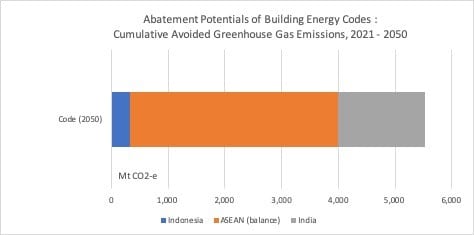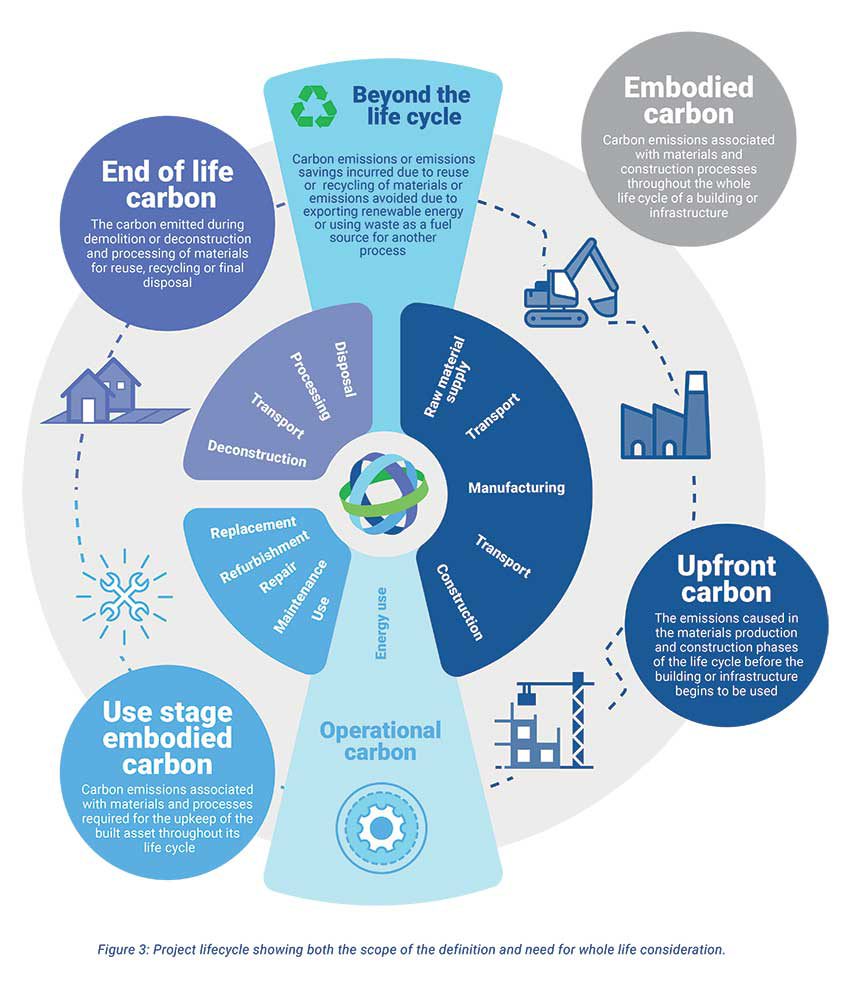Home > Our Impact > Buildings

Buildings
Collectively, India, Indonesia, and Southeast Asian countries are already among the largest sources of GHG emissions in the buildings sector. On the horizon is Africa—where rates of urbanization could overtake Southeast Asia after 2030. GBPN works in these regions to produce the greatest impact. This includes working with governments to change policy at all levels alongside implementation support for innovative policy reform programs to motivate decision-makers about smart and practical ways to deliver best practice in their region. By providing data-driven analysis and fostering partnerships, GBPN ensures that sustainable building practices are adopted and scaled.
Zero-carbon building codes that include energy efficiency, electrification, and renewable energy adoption
Zero-carbon building codes are a set of regulations and standards that can reduce and, ultimately, eliminate carbon emissions from the construction and operation of new buildings. Key components of these codes include resource- and energy-efficiency standards, incentives for on-site renewable energy sources, and requirements to shift the energy sources used in buildings from fossil fuels to electricity for heating, cooking, and other needs. The requirements and enforcement mechanisms of zero-carbon building codes should adapt to local factors such as climatic conditions, population needs, utility structures, and government capacity.
Policy spotlight
Since 2022, GBPN has been sharing international best practices to engage with multiple national and local government entities in Indonesia to support the national buildings stock model, green buildings, and green affordable housing policies, fiscal policy reform, and updating of nationally determined contributions. In October 2024, Indonesia launched its first integrated National Green Building Policy Implementation Roadmap, which establishes the pathway to adopting zero-emissions building codes that are projected to avoid 125 Mt of CO2e emissions.
Benchmarking requirements and building performance standards to facilitate improvements in existing buildings
Building performance standards reduce the carbon impact of buildings by requiring that they meet energy and/or GHG emissions-based performance targets in their operation, maintenance, and retrofits. These standards usually tighten over time, driving long-term improvement in the existing building stock. When combined with zero-carbon building codes, building performance standards are a powerful policy tool. Key aspects of building performance standards include metrics that measure energy consumption, benchmarking requirements, inspection and verification, and ratings that identify better-performing buildings for property investors and financiers, thereby supporting market transformation. To use building performance standards, jurisdictions must first adopt enabling policies to measure the energy use in buildings, such as through installation of smart meters.
Policy spotlight
Since 2021, GBPN has been working to support India with the adoption and implementation of the national energy conservation code for residential buildings (ENS). The ENS code requires residential buildings to meet minimum standards such as for wall insulation, window specifications, natural ventilation and daylight to optimize energy efficiency. Mandating of the ENS code and complementary revisions to the national Energy Conservation Act have an annual abatement potential of 60-80 Mt CO2e.

Embodied carbon standards to lower emissions from building materials like steel and cement
Embodied carbon standards can ensure that buildings are zero emission over their whole life cycle and not just during the operating phase by factoring in the emissions associated with the production, use, and maintenance of construction of materials. These policies include performance certificates and labeling to disclose building life-cycle emissions for all new buildings, as well as road maps and targets for reducing those emissions in line with net-zero goals.
Policy spotlight
The International Common Carbon Metric developed by GBPN from 2015 to 2017 provides a universal basis for calculating baseline GHG emissions from building stock. In its current form, it calculates baseline emissions from energy used in building operations. The tool has supported the development of nationally agreed mitigation actions in the buildings sectors of Indonesia, Thailand, Vietnam, and the Philippines. GBPN experts are now upgrading the metric to include embodied emissions to provide more accurate baselines and scenarios for reducing buildings sector emissions. The tool will enable government and industry to calculate whole-of-life emissions from buildings and build the evidence base required to support the development and implementation of embodied carbon standards.
Air pollution policies governing low-carbon appliance use and building construction
Building regulations can ensure minimum performance standards for indoor emissions of pollutants such as methane, nitrogen oxides, sulfur oxides, and volatile organic compounds, as well as natural ventilation, access to daylight, and thermal comfort. Indoor environmental standards can require all new or renovated buildings to be equipped with devices for monitoring and controlling indoor air quality. Additionally, all-electric building codes can eliminate direct emissions from gas combustion and methane leakage indoors. Complementary policies such as subsidies and rebates for heat pumps and induction stoves can lower the up-front cost of switching to zero-emission appliances.
Policy spotlight
GBPN’s work on healthy buildings and low-carbon cooling has led to policy recommendations that have informed a review of India’s National Building Code for Affordable Housing. The policy recommendations will support reduction in cooling energy demand while improving health outcomes, thermal comfort, and climate resilience for more than 40 million new affordable homes, with a potential cumulative savings of approximately 48 MtCO2e by 2030.

Ensuring equity
Emerging economies such as India and Indonesia are rapidly expanding building electrification, yet the source of most building emissions is embodied emissions from the production of building materials and products, and direct emissions. Direct GHG emissions in the buildings sector are associated with the residential use of fossil fuels and biomass to generate electricity, hot water, and space heating. Eliminating emissions from buildings therefore requires adopting zero-emissions performance requirements, achieved by minimizing energy demand through energy codes and performance ratings, reforming building codes and planning controls to phase out fossil-fuel use, and requiring connection to a renewable electricity supply.



